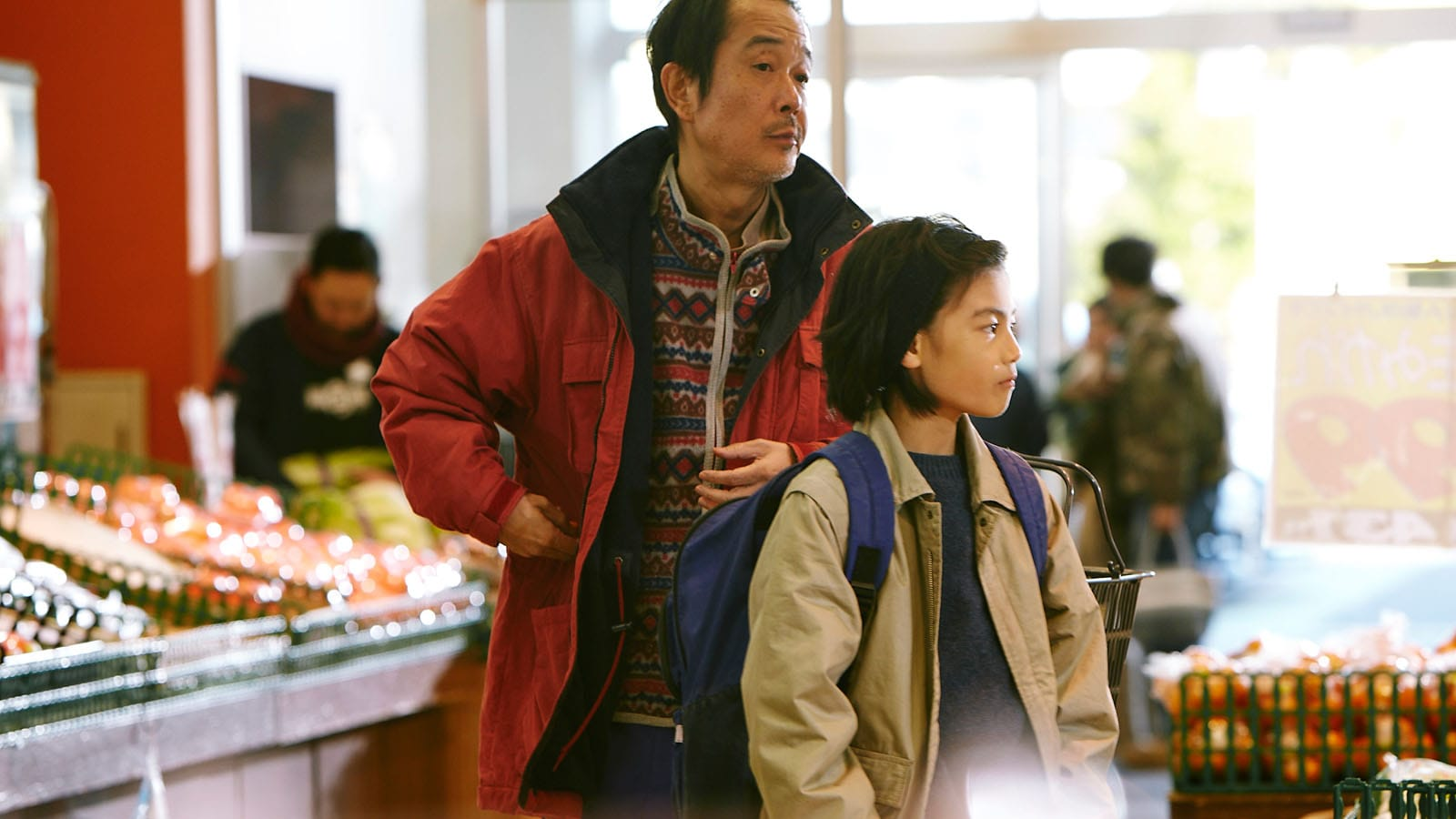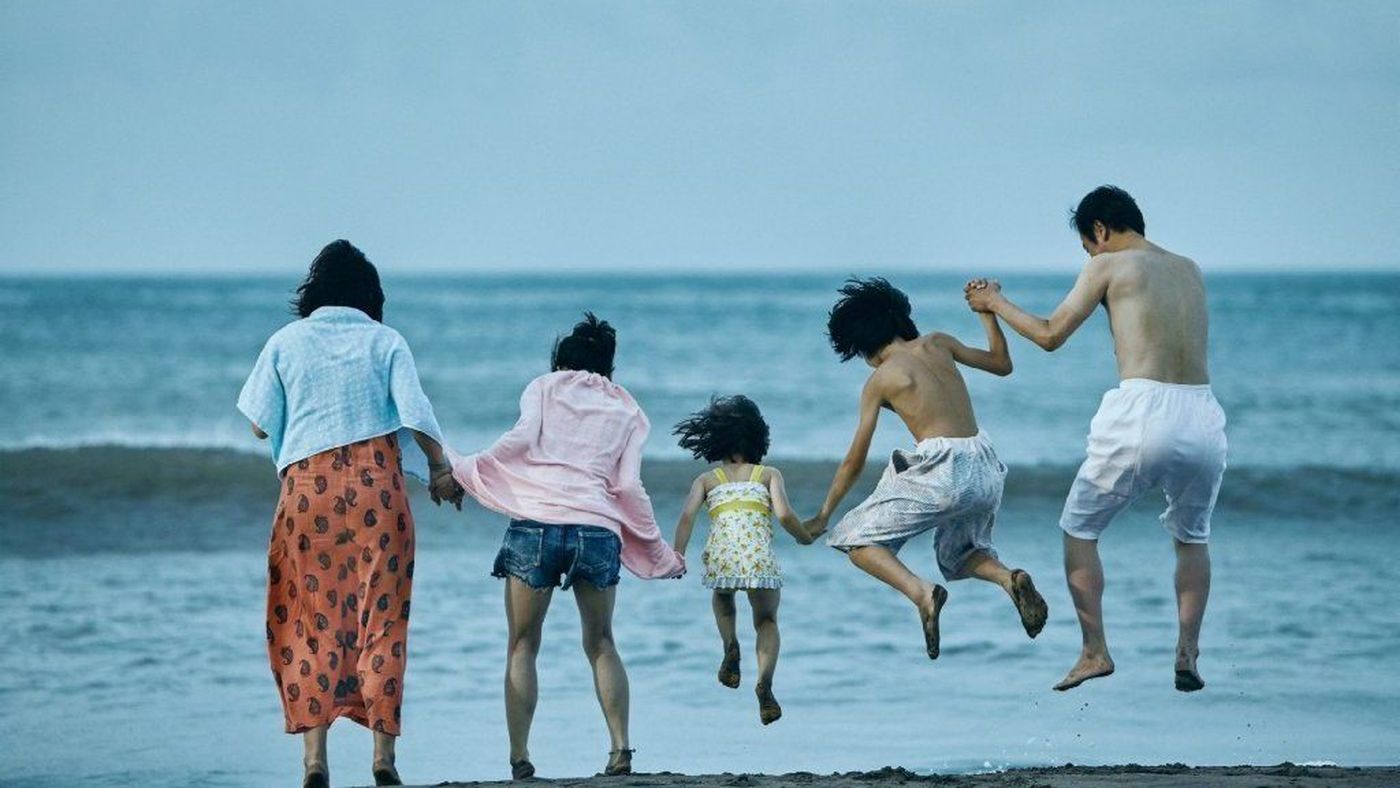When we talk about “chosen families,” we usually mean close-knit circles which, through our agency in their construction, stand as more authentic than the biological ones we were born into. They might be safe havens from the abusive homes to which fate has assigned us, but even when they’re not, the simple act of selecting them grants them a different, truer status. Characters in Hirokazu Kore-eda‘s understated, perfectly modulated gut-punch Shoplifters, which won the Palme d’Or at Cannes, wonder aloud about whether or not this is true, and the film never offers an answer. But Kore-eda plants us so firmly in the lives and desires of Shoplifters‘ protagonists that our hearts can barely stand the idea that it might not be.
 Nobuyo (Sakura Andô) and Osamu (Lily Franky, of Kore-eda’s 2013 Like Father, Like Son) live in a crowded, barely two-room flat on the outskirts of town, a space overflowing with books, beds, boxes, and assorted stuff. It’s the very opposite of some stereotypical, Ozu-like geometric minimalism, and not far removed from the kind of space you’d see in a kitchen-sink melodrama, though everyone sits on the floor or contentedly lies on pallets, as opposed to screaming at each other next to alley windows.
Nobuyo (Sakura Andô) and Osamu (Lily Franky, of Kore-eda’s 2013 Like Father, Like Son) live in a crowded, barely two-room flat on the outskirts of town, a space overflowing with books, beds, boxes, and assorted stuff. It’s the very opposite of some stereotypical, Ozu-like geometric minimalism, and not far removed from the kind of space you’d see in a kitchen-sink melodrama, though everyone sits on the floor or contentedly lies on pallets, as opposed to screaming at each other next to alley windows.
The husband and wife share the living quarters with Granny (Kirin Kiki), who pays the rent with a pension from her ex-husband and handouts from his guiltily estranged family; a lonely younger woman (sister? cousin? auntie?) Aki (Mayu Matsuoka), who works at a sex shop; and the young floppy-haired, quick-witted Shota (Jyo Kairi), introduced alongside Osamu as they steal food from the market (but, to his and Nobuyo’s chagrin, forgetting to pocket some shampoo). It’s only later we discover that none of the people in Shoplifters‘ tight-knit clan are, technically, related.
We add one more charge to the mix, in the form of Yuri (Miyu Sasaki), an even younger child the central couple discover sitting alone in the cold. Her shyness and skittishness, not to mention functional abandonment in the night, speak to a rotten homelife; the scars and burns on her body attest to it. One burn in particular matches a similar one on Nobuyo’s arm; the abused child and the childless mother are linked by flesh. Yuri stays the night but is free to go — indeed, it starts to seem a lot like kidnapping, and would probably be safer for everyone but Yuri if she left. She chooses not to.
 This is where Shoplifters begins to make explicit its core ideas about chosen families. Poverty, abuse, and the demands of survival dictate the terms; our freedom to construct our lives is circumscribed. The rest of the film tracks the family’s collective and individual choices under conditions not of their choosing, and revelations about each character’s background and motivations undercut any purity of the ideal. Kore-eda’s commitment to empathetic realism overwhelms the sentimentality of the narrative; this world is much less cute than audiences might hope.
This is where Shoplifters begins to make explicit its core ideas about chosen families. Poverty, abuse, and the demands of survival dictate the terms; our freedom to construct our lives is circumscribed. The rest of the film tracks the family’s collective and individual choices under conditions not of their choosing, and revelations about each character’s background and motivations undercut any purity of the ideal. Kore-eda’s commitment to empathetic realism overwhelms the sentimentality of the narrative; this world is much less cute than audiences might hope.
But it’s all the more deeply felt for that. The glimmers of connection and beauty are wondrous, but Shoplifters is clear-eyed as it breaks our hearts. There’s always possibility, ephemeral as it might be, and we’re all linked, if only in the moments we manage to steal, from a world we didn’t create.

